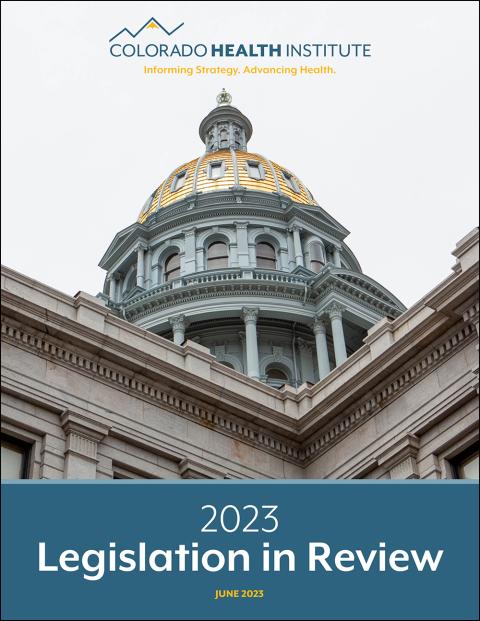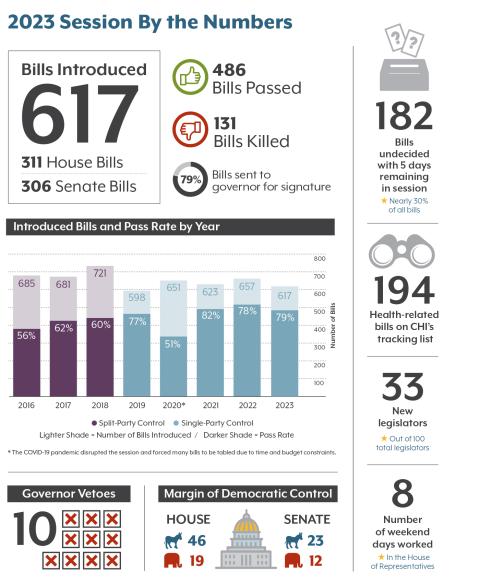Democrats entered this legislative session with confidence, touting a mandate from Colorado voters for their team to deliver bold, progressive policies after the November election. Though the party had been fully in control of state government for four years, their advantage grew to historic margins, especially in the House. And there were plenty of fresh faces: one-third of legislators were new to the Capitol.
With a larger caucus comes greater diversity of opinion, and Democrats didn’t always see eye to eye. While Republicans played a hand in policy discussions, the most notable debates often came from internal disagreements among Democrats, with moderates and progressives at odds over key issues. Governor Jared Polis vetoed 10 bills, frustrating members of his party. And despite calls to prevent a crush of bills in the final days and hours of the session, it happened again in 2023.
From budget constraints to Republican delays, Democrats struggled at times to advance their agenda, particularly as the clock ticked down. Members of the party’s left wing hit roadblocks in areas such as criminal justice, substance use, and housing, with progressive Democrats unsuccessfully pushing for measures to limit arrests for certain non-violent offenses, allow cities to open overdose prevention centers, and place limits on single-family zoning for homes. Longstanding lobby groups also exerted influence, successfully opposing or amending legislation that critics said threatened the interests of local governments, hospitals, and businesses.
But in the end, Democrats largely delivered on their promises. Two successes of note: passage of bill packages addressing reproductive health and guns. These highly partisan issues proceeded quickly, generally facilitated by support from across the Democratic Party, including both progressives and moderates, legislative leadership, and the governor. The new laws are receiving national attention, held up as models for other states looking to pass legislation popular with progressives.
Many policy decisions each session come down to money. After being flooded with federal COVID-relief aid the past two sessions, the legislature had fewer dollars to spend on new programs and initiatives. This forced tough decisions for leaders, including members of the Joint Budget Committee, which shapes the state’s budget. Legislators focused on pocketbook issues, notably controlling health care costs, promoting affordable housing, and providing tax relief and tax credits.
And health, again, was at the forefront. Legislators passed bills to improve behavioral health access and funding for screening and treatment services. They changed up some notable new programs, such as the Colorado Option insurance plan and Prescription Drug Affordability Board (PDAB), as well as the Behavioral Health Administration (BHA). They altered licensing and scope-of-practice requirements for health care providers, such as physician assistants and psychologists, and continued to advance a slate of policies focused on climate change by tackling air quality and wildfire issues. They extended coverage for some people on Medicaid.
Without a major election in the fall, the months before the start of the 2024 session should be a quieter time when legislators and stakeholders will savor their wins and contemplate their losses before developing next year’s strategy. But make no mistake, this is not a game; the health of our state depends on it.
Note: Throughout this report, bills that passed are highlighted in GREEN. Bills that failed are highlighted in RED.






